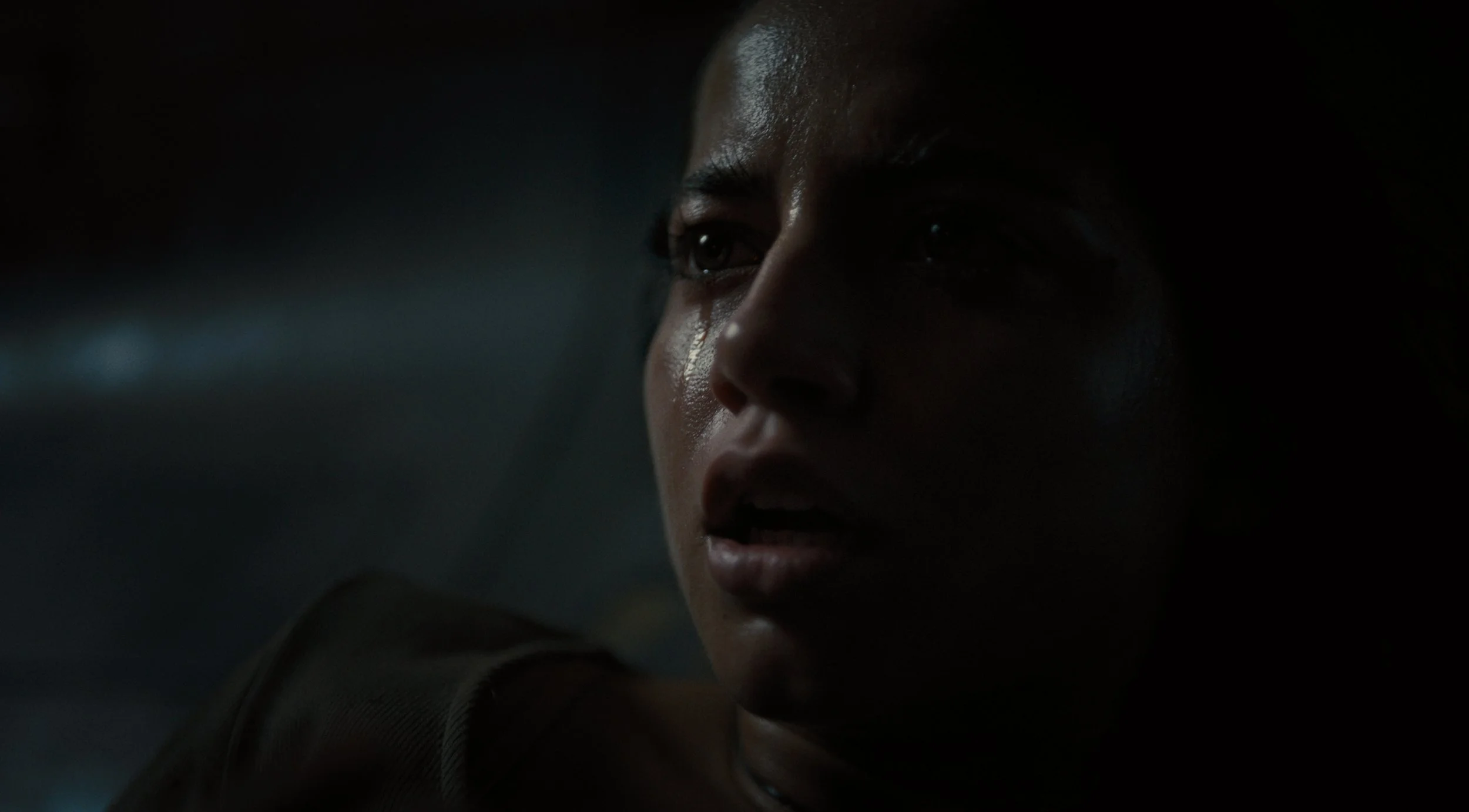Alien: Romulus - In Space, No One Cares That It's An Homage
By Thom Ernst
Rating: B
Director Fede Alvarez is a confessed fan of the Alien films. And he peppers evidence of his appreciation throughout Alien: Romulus, the seventh entry in the franchise—nine if you count the two times Alien met the Predator, but that's just encroaching on Predator territory.
So, dedicated to the authenticity of the original films, he sought out the special effects team from director James Cameron's Aliens (1986) to recreate the xenomorph creatures in their various forms, as per H.R. Giger’s original vision..
You might think it's a given that anyone tasked with continuing a franchise appreciates the original. But after director David Gordon Green’s absurd admission that he never saw The Exorcist (1973) before attempting to reboot the franchise—and his film The Exorcist: Believer (2023) stands as a testament to his ignorance—one can appreciate Alvarez's confirmed status as a fan.
The prevailing argument is that Alien: Romulus is merely an encore of the franchise's greatest moments. That is true, but it isn't as damaging an assessment as it seems.
Alvarez, whose film Don't Breathe (2016) now has a drolly ironic title after the filmmaker breathed new life into the Evil Dead franchise, highlights all we might and should expect from an Alien movie.
Alvarez delivers even though it's easy to see where he plucks his inspiration. Here, again, is a motley crew of blue-collar hard-asses, crab-like face-huggers, exploding thoracic cavities, synthetic life forms, plus the return of a character from Ridley Scott's original Alien (1979). Hint: it's not the Alien.
But whatever Alien: Romulus lacks in originality, it gains by honouring the mythology of its predecessors—something David Fincher's Alien 3 (2009) overshot by killing off most of the survivors from the previous storyline. Unlike Fincher, Alvarez is not obligated to pick up where the last film left off. Romulus works as a stand-alone sequel, the way Rogue One: A Star Wars Story (2016) works as a stand-alone in the Star Wars universe.
The significant difference between Alvarez's film and other Alien movies is that in this outing, the gnarly, working-class space jockeys are a group of renegade teens instead of the hardened crew of convicts, astronauts, and cosmic trash collectors. The young cast doesn't disappoint, but Romulus lacks something of the artistry prevalent in the first Alien—artistry that benefited from actors like Yaphet Kotto, John Hurt, Tom Skerritt and Veronica Cartwright.
And there's no Sigourney Weaver as Ripley. Instead, standing in for Weaver's Ripley is Cailee Spaeny as Rain.
Spaeny, who was recently seen in Civil War (2024) and as Priscilla Presley in Sophia Coppola's Priscilla (2023), plays Rain as a plucky, orphaned teen who tends to her 'brother' a neurodivergent android named Andy (David Jonsson). When Rain is refused her rightful dismissal after fulfilling her mandatory duty, she agrees to join her friends in a scheme to steal cryo-sleep pods from an abandoned vessel so they might travel to a sunnier planet.
Among the unfortunate to join her (one of whose fate is revealed in the trailer) are Rain's chivalrous love interest, Tyler (Archie Renaux), a pregnant teen (Isabela Merced), Navarro (Aileen Wu), and Bjorn (Spike Fearn), the obnoxious android-phobe.
In many ways, Romulus is, as accused, like its predecessors, yet Alvarez adds some striking new inclusions plus a solid storyline to carry the film on its own merits. Alien: Romulus may not have the edgy feel of the original Alien, nor the rollercoaster ride we got with Aliens, but it's arguably the best entry in the franchise in over thirty years.
Alien: Romulus. Directed by Fede Alvarez. Starring Cailee Spaeny, David Jonsson, Archie Renaux, Isabela Merced, Aileen Wu and Spike Fearn. Now in theatres.



